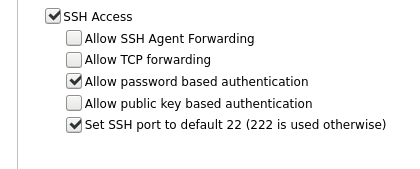Howzit Chris
If you cannot figure out why the password changed, then I suggest you treat the machine as compromised.
Common practise, is to remove log entries that show questionable activity and leave the rest, this avoids suspicion and lets the system give the resemblance of being normal. The only way to check if this was done needs command line access, which you don’t have… catch22 
If you however wish to keep said system and only want to reset the root password… let’s open Pandora’s box 
It’s been some time since I needed to reset root pwd, so bare with me.
If memory serves me correctly you should have the option at boot to edit grub.
What you are looking for is the line starting with linux, mine as an example looks like
linux /vmlinuz-4.14.173-ipfire root=UUID=*long string of ascii* ro panic=10
You may even have more than one of those lines.
You need to change the image from read-only to read/write, so change the ro part at the end to rw
Exit edit, and type mount to see what the root (/) partition is and if its set to rw
# mount
/dev/sda3 on / type ext4 (rw)
/dev/sda1 on /boot type ext4 (rw)
/dev/sda4 on /var type ext4 (rw)
In the above example ./ is /dev/sda3 and is rw
If it says ro, you need to redo step one.
If its rw you can now type passwd root which will let you reset the root password.
If it moans with an error
passwd: Authentication token manipulation error
passwd: password unchanged
Then the partition is still ro and not rw
See if it will let you mount the / partition manually (not sure if the flag is -o or -n -o, you may want to check that)
mount -n -o remount,rw /
passwd root
If that worked you can type exec /sbin/init
Let the system boot and check if you can now login as root with your new password.
Alternative would be if you have a Linux live CD to boot from (I think Slax, Mint, Ubuntu, Debian, Slackware let you run off the CD before install or get a copy of Kali), open command prompt and check what the root partition is, type
fdisk -l
Lets assume it’s /dev/sda3 as the above example, then do the following
mkdir /mnt/rec
mount /dev/sda3 /mnt/rec
chroot /mnt/rec
passwd root
exit
umount /mnt/rec
exit
Eject the live CD and let the system restart.
If I am not as rusty as i think I am you should now have resolved the issue, check your logs entries 
Hope this helps, good luck
On a side note, I add in public key(s), once I have set up ssh, and then disable password based access. No need to worry about keyboard language or layout there after…and it’s considerably more secure.



